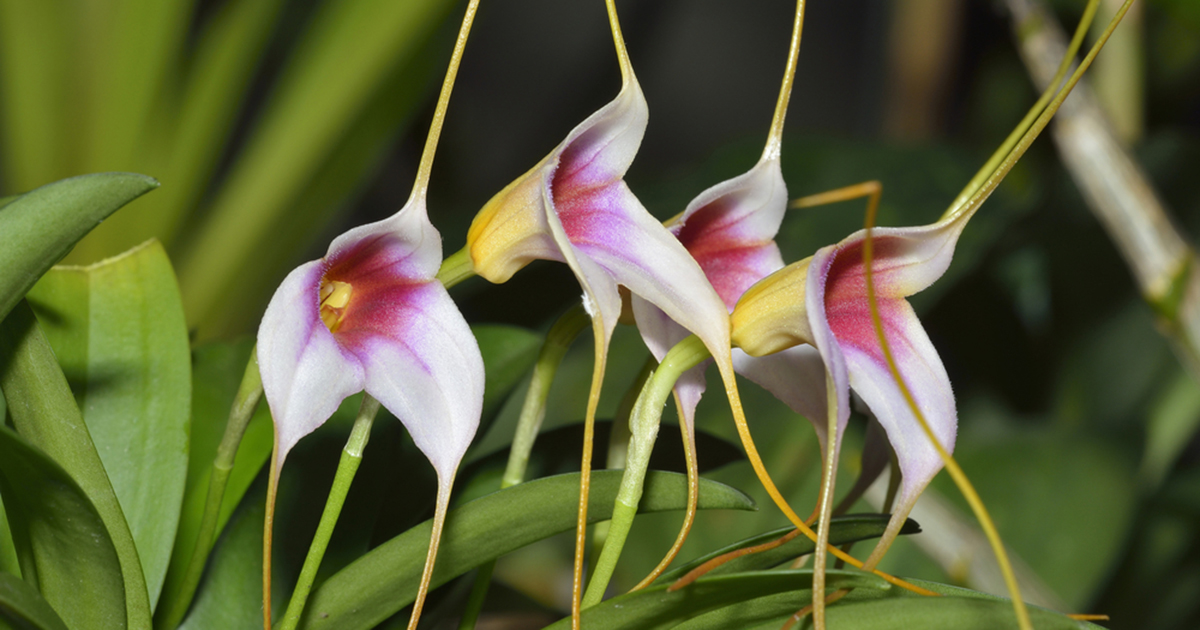This time around, we shall cover Are Mums Poisonous For Cats. Obviously, there is a great deal of information on Chrysanthemum Cats on the Internet. The rapid rise of social media facilitates our ability to acquire knowledge.
information about Are Daisies Toxic To Cats is also related to 6 common plants poisonous to pets that you should avoid and Poisonous plants. As for further searchable items pertaining to Are Asters Poisonous To Cats, they will likewise have anything to do with Chrysanthemum Cats.

21 Fun Facts Are Mums Poisonous For Cats | Are Sunflowers Toxic To Cats
- Chrysanthemums, otherwise known as mums, are a common decorative fall flower. These plants are toxic to both cats and dogs. Signs of ingestion may include vomiting, diarrhea, increased salivation, incoordination and/or skin irritation. - Source: Internet
- After gardening, never leave hedge clippings or uprooted plants near pets. Their novelty value may encourage inquisitive chewing. Sap from damaged stems can cause skin irritation as well as being poisonous. Bulbs, rhizomes and roots can be the most hazardous parts of some plants. - Source: Internet
- When it comes to sprucing up your home, there’s no denying that a potted plant or two (or five) can make a major difference. But, not all plants are suitable to have near your furry friends. To help you keep your home safe, here are 6 common plants poisonous to pets that you should avoid. - Source: Internet
- Castor bean. The poisonous principle in Ricinus communis is ricin, a highly toxic protein that can produce severe abdominal pain, drooling, vomiting, diarrhea, excessive thirst, weakness and loss of appetite. Severe cases of poisoning can result in dehydration, muscle twitching, tremors, seizures, coma and death. - Source: Internet
- Lilies. Members of the Lilium species are considered highly toxic to cats. Many types of lily, such as tiger, Asian, Japanese Show, Easter, Stargazer and the casa blanca, can cause kidney failure in cats. While the poisonous component has not yet been identified, it is clear that even with ingestions of very small amounts of the plant, severe kidney damage could result. - Source: Internet
- Consumption of poisonous plants can cause a range of symptoms from vomiting to serious illness and even death in some cases. If you suspect that your cat has ingested a poisonous plant, take it to your vet immediately. If you can, it is recommended you bring part of the plant your cat ingested with you to the vet, as they may be able to advise if the plant is toxic or not. - Source: Internet
- Unfortunately, these seasonal favorites pose a potentially toxic threat to your pets. Chrysanthemums contain pyrethrins, which are the same active ingredient used in many canine flea and tick preventatives. Although much less of a concern for dogs, if your cat ingests any part of the chrysanthemum plant, they may suffer from bouts of vomiting, diarrhea, and inappetence. Cases of larger amounts of ingestion even show neurologic signs, such as ataxia and incoordination. Cats are especially sensitive to pyrethroid toxicity and, though we know not to put flea and tick preventative medication for dogs on our cats, we may be unaware that our beloved “mums” contain that same harmful ingredient (albeit in a much smaller concentration). - Source: Internet
- Although The American Society for the Prevention of Cruelty to Animals (ASPCA) has a full list of poisonous plants from around the world on its website, we’ve outlined the most common ones cat-lovers should steer clear of. If you notice your cat exhibiting any strange behavior after coming in contact with the following plants or flowers, be sure to contact your vet. Scroll ahead to get a look at what should be avoided and why. - Source: Internet
- As many cats have free access to the house and outdoors, it can be difficult to know if they’ve come across a poisonous plant. This means it’s even more important to know the symptoms of plant toxicity so you can spot the signs early. Symptoms of plant poisoning include: - Source: Internet
- There are a few plants which are known by many cat owners to be poisonous for their feline friend. Probably the most common of these are lilies. All parts of the lily are toxic to cats and cat owners should avoid having them in their house or garden. - Source: Internet
- A common flower in many arrangements sold at grocery stores because of their gorgeous colors and pretty petals, hydrangeas are poisonous to cats and other animals. Hydrangeas have metabolites within them, and these are the toxic elements. And although all parts of this plant are toxic, it’s the flowers and the leaves that can cause the most damage, so vets recommend you call them right away if you’ve noticed your pet taking a nibble (even if symptoms haven’t shown up yet). - Source: Internet
- The foliage of this plant is poisonous to many animals — not just dogs and cats, but livestock as well. Pentacyclic triterpenoids in the leaves cause labored breathing, weakness, and sometimes vomiting and diarrhea. In severe cases, liver failure can happen. - Source: Internet
- Sago palm. All parts of Cycas revoluta are poisonous, but the seeds or “nuts” contain the largest amount of toxin. The ingestion of just one or two seeds can result in very serious effects, which include vomiting, diarrhea, depression, seizures and liver failure. - Source: Internet
- For example, while the common lilac plant (Syringa vulgaris) is not considered poisonous to cats, the Persian lilac of the Melia genus is. “This plant is very toxic. It can cause more severe gastrointestinal distress, and also muscle weakness, tremors, and seizures if ingested,” says Bischoff. - Source: Internet
- Chrysanthemums are native to Asia and northeastern Europe. They are flowering plants of the genus Chrysanthemum in the family Asteraceae, sometimes called chrysanths or mums. The flowers varied in many forms like pompons or buttons and it can be daisy-like. It is one of the popular flowers used for display and bouquets. - Source: Internet
- From the beautiful mums to the treacherous mushrooms, autumn poses its own lineup of toxic threats. So, enjoy fall’s charm, but if your cat or dog starts having vomiting or diarrhea, do not hesitate to contact your veterinarian. While the toxins of fall range from mild and self-limiting, some are life-threatening and you can never be too careful. - Source: Internet
- All cat parents should know the most common plants that are poisonous to cats. Whether in your yard or in your home, you’ll want to keep certain plants and flowers away from your feline companions. The toxicity of various plants and flowers can range from mild to severe, depending on the poisonous component of the plant. - Source: Internet
- Toxin vs. Poison When referring to plants, “toxicity” is used instead of “poison.” A toxin is a naturally occurring poisonous substance, but it may not necessarily injure or kill an organism because it varies on a scale of mild to severe. Meanwhile, a poison will likely cause harm to an organism. - Source: Internet
- Particular indoor and outdoor plants are toxic to cats and should be restricted from your home. While in some cases, just parts of a plant might be poisonous, we highly recommend that you completely avoid having these plants in your home or garden for the safety of your pet. If you are unsure whether or not a plant is toxic to cats, don’t hesitate to ask your local Greencross Vets. - Source: Internet
- If your cat insists on munching on your houseplants, provide them with plants that are healthy for cats to ingest. Catnip is a great alternative as it has the added benefit of aiding digestion and eliminating hairballs. Should your cat eat part of a poisonous plant, don’t hesitate to rush them to your local Greencross Vets as soon as possible. If you can, take the plant with you for ease of identification. - Source: Internet
- If you think your cat has eaten part of a poisonous plant, promptly bring your cat to your veterinarian. If you can, take the plant with you for ease of identification. If you think that your animal is ill or may have ingested a poisonous substance, contact your local veterinarian or the ASPCA 24-hour emergency poison hotline directly at 1-888-426-4435. - Source: Internet
 To begin started, here are some tips for finding information about Are Chrysanthemums Toxic To Dogs:
- Research Are Roses Safe For Cats-related information from credible sources. This includes libraries, websites, and even journalistic professionals.
- When researching are mums poisonous to cats and dogs, it is vital to be aware of the numerous sorts of electronic media sources, such as Google and YouTube. Social media platforms, such as Facebook and Twitter, are also likely to contain information regarding What plants are toxic to cats?.
To begin started, here are some tips for finding information about Are Chrysanthemums Toxic To Dogs:
- Research Are Roses Safe For Cats-related information from credible sources. This includes libraries, websites, and even journalistic professionals.
- When researching are mums poisonous to cats and dogs, it is vital to be aware of the numerous sorts of electronic media sources, such as Google and YouTube. Social media platforms, such as Facebook and Twitter, are also likely to contain information regarding What plants are toxic to cats?.Video | Are Mums Poisonous For Cats
To obtain the most accurate information about Are Mum Flowers Poisonous To Humans, it is essential to investigate the credibility of each source by reading.
This article contains multiple Are Fleurettes Poisonous To Cats-related films from a variety of sources, which will expand your understanding about Are Mum Flowers Poisonous To Humans. Internet is an excellent resource for getting information on a range of subjects.
## Here are some crucial points concerning Toxic/Dangerous Fall Plants:- Are Mums Poisonous For Cats
- Are Chrysanthemums Poisonous For Cats
- Are Mums Bad For Cats
- Are Mums Toxic For Cats
- Are Mums Poisonous To Cats And Dogs

With so many websites and forums giving Are Asters Poisonous To Cats-related information, it is not difficult to locate what you require.
This is a highly unconventional method for obtaining knowledge about 10 Flowers That Are Poisonous to Cats, compared to what most people are accustomed to. It permits a more in-depth examination of the content and application of information regarding Are Mum Flowers Poisonous To Humans.
 Methods for creating aesthetically pleasing and informative displays of Are Carnations Poisonous To Cats information. They can be utilized in business and marketing environments to convey messages regarding Are Roses Toxic To Cats. Consequently, we additionally supply photographs regarding Are Mums Toxic To Humans.
Methods for creating aesthetically pleasing and informative displays of Are Carnations Poisonous To Cats information. They can be utilized in business and marketing environments to convey messages regarding Are Roses Toxic To Cats. Consequently, we additionally supply photographs regarding Are Mums Toxic To Humans.
This article concludes by providing an overview of 30 Common Houseplants From A-Z That Are Toxic To Pets. In addition, are chrysanthemums poisonous for cats and Which Plants Are Dangerous For Cats? are discussed to compare your understanding of Are Asters Poisonous To Cats.